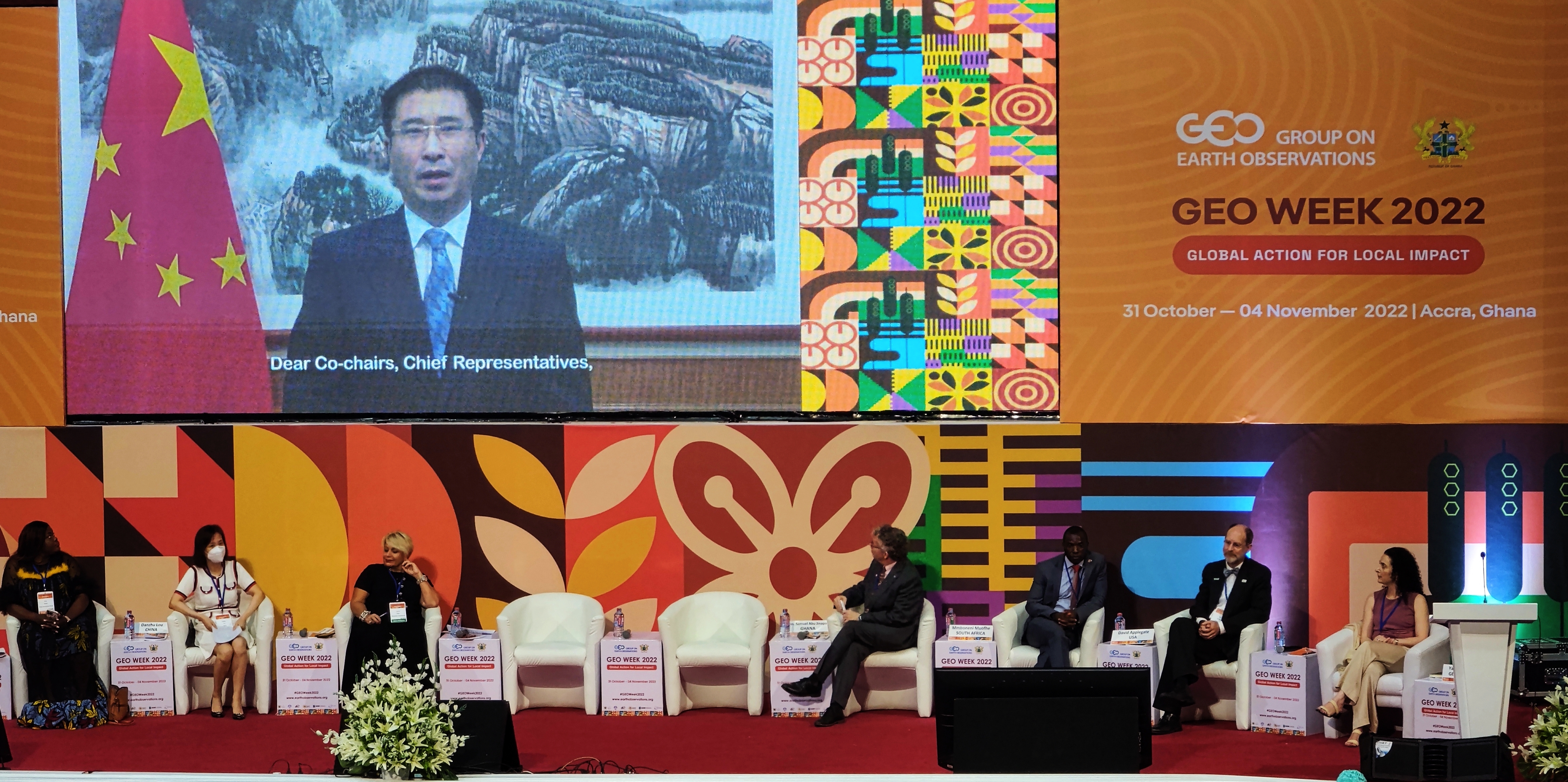China Expresses its Voices on GEO Week 2022

Zhang Guangjun, China's vice minister of science and technology and GEO co-chair, delivers an online speech in the openning session. (PHOTO: National Remote Sensing Center of China)
By GONG Qian
GEO Week 2022 opened in Accra, Ghana, from October 31 to November 4, with in-person and online participants attending a series of sessions. Themed "Global Action for Local Impact," the gathering focused on the Earth observations capacity building and applications in Africa and beyond.
Group on Earth Observations (GEO) is an intergovernmental partnership working to improve the availability, access and use of Earth observations.
Zhang Guangjun, Vice Minister of Science and Technology of China and GEO China Co-chair, delivered an online speech in the opening session. He said that over the past year, Earth observations technology has played an important role in delivering stronger, greener and healthier global development, noting that China has made efforts to provide technical and data support for the international community. For example, China announced in this September that all data collected by its Sustainable Development Science Satellite-1 would be shared with the world.
Zhao Jing, Director General of GEO China Secretariat and National Remote Sensing Center of China (NRSCC), said that Earth observations technology, as an indispensable technological means for human beings to observe the Earth and solve major global problems, has been widely used in natural resources management, disaster risk reduction, climate change and food security. It could bring powerful impetus to economic and social development. With the gradual improvement of Earth observation capability, China obtains strong advantages in infrastructure and data, said Zhao.
Bai Yuqi, professor at Tsinghua University, recommended that the GEO community should deal with the shortcomings and challenges of the Global Earth Observation System of Systems (GEOSS) from the perspective of historical development.
Zeng Hongwei, professor at Aerospace Information Research Institute, Chinese Academy of Sciences, illustrated how China's CropWatch Cloud Platform and the research team provided solutions for African countries inland crop mapping, flooding damage assessment and collecting grid crop production data.
As the leading crop monitoring system of China, CropWatch is one of the participants in the GEO Global Agricultural Monitoring initiative(GEOGLAM). So far, it has served for over 170 countries and regions, said Zeng.
On the side event of Evidence-based decisions and impact through National GEOs, Liu Zhichun, Deputy Director General of GEO China Secretariat, NRSCC shared China’s experience and achievement in building China GEO National Coordination Mechanism.
For example, by this October, the Collaborative Network on Disaster Data Response (CDDR) mechanism has provided information services to cope with 35 major disaster emergency events such as earthquakes, volcanoes, floods in 25 countries, said Liu.
Zhao said China GEO community will further strengthen in-depth research to address common global challenges and carry out cooperation on food-security early warning, ecological-environment monitoring and climate change response.
GEO is currently at a critical juncture in its development where it needs to execute the GEO Strategic Plan 2016-2025, and to make plan for post 2025. Therefore, in the closing session, Zhang called on the GEO community to pool their efforts in Earth observations at global, regional, national and local levels.
"In the coming year, China will continue to honor its commitments as a member, and fulfill our duty as a co-chair, and contribute to the development of GEO," said Zhang.







